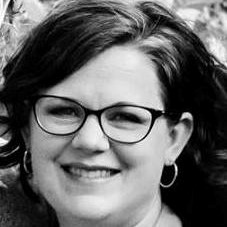Teaching Our Children to Be Like Penelope (In a World Full of Cyclopes)

By Rachel Greb
The wisdom of Penelope is juxtaposed with the tunnel vision of the Cyclopes.
In Homer’s Odyssey, Odysseus’ long-suffering wife Penelope is nearly always referred to with her epithet “circumspect.” Circumspect is a wonderful Latin derivative, literally meaning “to see around”; it bears the implication of one who holds her cards close to her chest. Penelope frequently appears in the story leaning against a pillar or at the top of a staircase, observing the activities of people around her. She surveys her surroundings and takes full account. She understands much, says little, and continues to wait for her husband to return from his twenty-year absence. She is circumspect both literally, in her view from the pillar in her home, and figuratively, in her ability to discern the motives of those around her.
During the most well-known part of the poem, Odysseus recounts his travels back to the Phaeacian king, Alcinous, and his guests. He tells them of various encounters with barbarians, sea monsters, an enchantress, a trip to the underworld, and even some zombie-like cows (side note: one of the lessons in the Odyssey is not to eat unfamiliar and obviously suspicious foods). One of the episodes he spends the most time recounting, however, is when he and his men land on an island inhabited by Cyclopes. Odysseus goes to considerable lengths to tell his audience how utterly barbaric the Cyclopes are. They do not cultivate their land, they do not meet together in assembly or live in community, and each one is a law unto himself. They neither receive visitors nor travel. In fact, as he points out to his audience (whose profession is shipbuilding), they would not even know how to build ships if they wanted to.
But if indeed
This is Odysseus, home again, we two
Shall know when we have spoken; there are signs
Hidden and known between us both alone.Odyssey XXIII.107-110
But what is it that Odysseus despises so much about the Cyclopes? He had encountered other barbarians on his adventures, and they fail to elicit the same visceral reaction the Cyclopes do. But then the reader remembers who it is that Odysseus has left waiting for him for twenty years at home in sunny Ithaca: his wife, Penelope. Penelope, the circumspect one who sees all and understands, stands juxtaposed with the Cyclopes, who are by nature myopic. Limited by their single eye, they have no perspective, no long view; they understand nothing that goes on around them. They represent the opposite of everything Odysseus holds dearest.
So what does this all mean, in terms of teaching our kids to be more like Penelope and less like the Cyclopes? I believe this is what a good education does for us. We have to do the hard work of understanding all of the elements of a great story, for example, and we generally need to see it again and again to recognize its various shapes and hues. But then when we encounter it outside of the classroom (which is really how great stories are meant to be encountered), then we have the ability to see the transcendent truth about it and not be bogged down by the particular. It is the same thing with anything we learn: we must learn the elements of language to create poetry, the theory of colors to make beautiful paintings, and practice the études and scales before playing a concerto. This is the heart of classical education: to see the importance of all of the parts, while understanding at the same time that the whole is greater than the sum of those parts. We grasp and value both the parts and the whole in the context of each other. Seeing only the parts will eventually lead us to myopia, a Cyclopean blindness. But a binocular vision of the whole gives us perspective, wisdom, and understanding.
Rachel Greb is the Director of Secondary Partnerships with CLT. Rachel earned a B.A. from the Hillsdale College Honors Program and an M.A. in Christian and Classical Studies from Knox Theological Seminary. She is currently a doctoral student at Harrison Middleton University, specializing in the history of the philosophy of education. Rachel has served as a co-founder and head of school, academic dean, and teacher at Oakdale Academy.
___________________________________________________________________________________
If you liked this piece, check out some of our author profiles, on names from Plato to Beowulf to Jane Austen.
Published on 27th October, 2020.